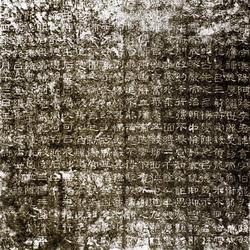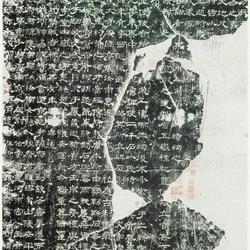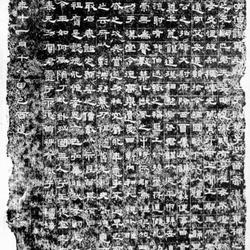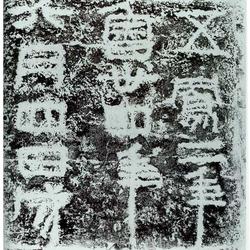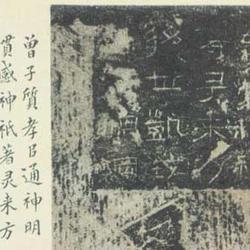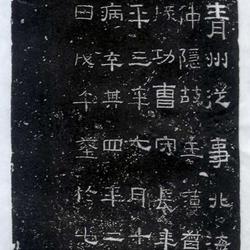Wadang, commonly known as tile head, is the part of the tile applied to the rafters that hangs down to cover the rafter head. Wadang was most popular in the Qin and Han dynasties. In addition to patterns, characters were mostly used, with seal script being the most common. It was called "written wadang". The following introduces some of the collections of the Palace Museum.
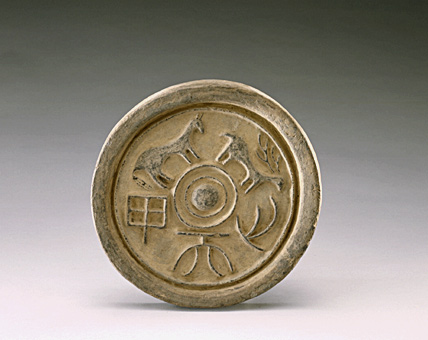
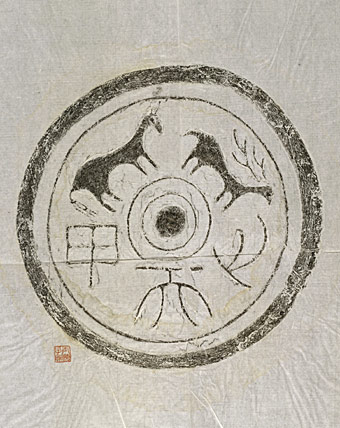
"Jiatianxia" tile, Western Han Dynasty, 19.8cm in diameter. Collection of the Palace Museum, Beijing
Western Han dynasty tile, made of pottery. Wadang is a construction material, covering the top edge of palaces, temples or other buildings, with the drooping side facing outward, so it is called "dang", which means orientation. The tile surface is usually round, with patterns, characters, or both coexisting on it. It is an important object for studying patterns, characters, and architectural components. The upper part of this tile has a pattern of a horse and a deer, juxtaposed on the left and right, and the three characters "Jia Tianxia" are raised in the lower part, written in seal script. When "Jia" is used as an ordinal number, it is the name for the number one. "Selected Works·Zhang Heng's "Ode to Xijing"" says: "Jia is the first person in the North Palace, and the road opens directly." "Jia Tianxia" means to show status.
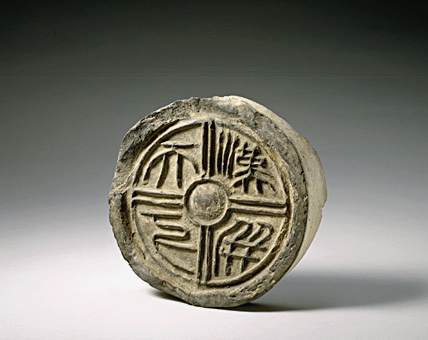
"Han Dynasty" tile, Western Han Dynasty, 17cm in diameter. Collection of the Palace Museum, Beijing
The "Han Dynasty Conquers the World" tile was unearthed in Yueyang, Lintong County, Shaanxi Province in 1951. It was made by Liu Bang, the great ancestor of the Han Dynasty, when he first unified the world.
Western Han dynasty tile, made of pottery. On the front of this tile are the four characters "Han Bie Tian Xia" (Han Bie Tian Xia) raised in seal script. The "Book of Han·Jia Zou Meilu Biography" records: "Huhan combined twenty-four counties and seventeen princes, and the output was wrong, and it traveled thousands of miles without stopping on the road." Also in the "Biography of Dong Zhongshu", it is said that "Now your Majesty has In the world, everyone in the world will obey, read and listen widely, know all the people, make the best of the world, and show the best virtues to the outside world. Yelang and Kangju, thousands of miles away from each other, say virtues return to friendship, this is the result of peace Ye." "The Han Dynasty merged with the world" means to be praised.
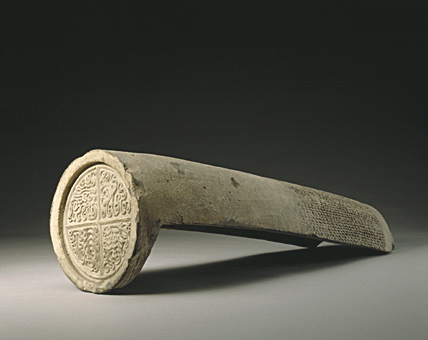
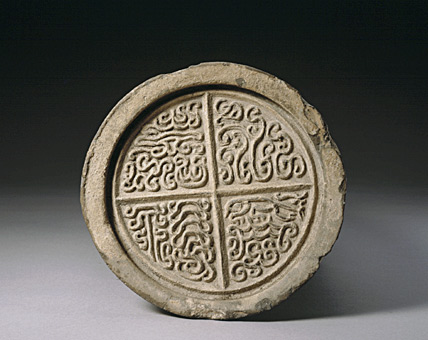
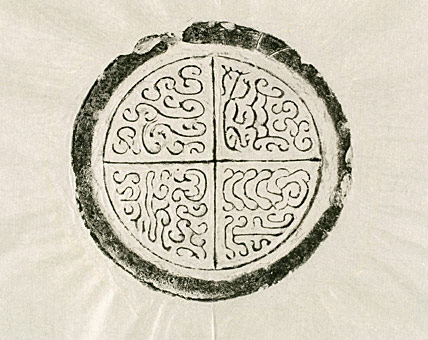
"Eternally blessed" tile, Western Han Dynasty, 15.7cm in diameter. Collection of the Palace Museum, Beijing
Western Han dynasty tile, made of pottery. On the face of the tile, the four characters "forever blessed" are raised and written in Miao seal script. Miao seal script can often be seen in the bronzes and seal texts of the Han Dynasty. "Hanshu·Liyuezhi "Seventeen Chapters of Anshifangzhongge"": "His poem says: Inheriting the emperor's Mingde, learning from Xiangshan's principles. Yunshi praises the people, and will always receive blessings. Inheriting the emperor's integrity, inheriting the emperor The enlightenment. The people will be happy and blessed without borders." "Be blessed forever" are the words of blessing.
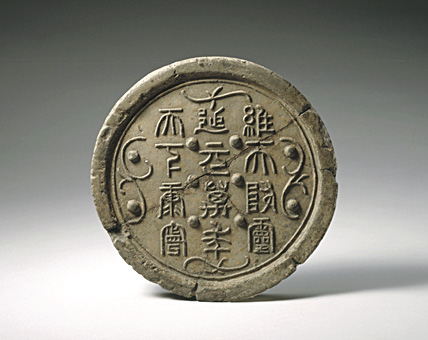
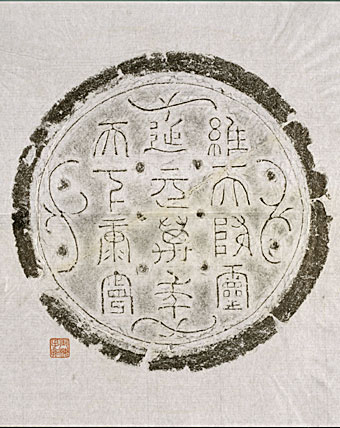
"Weitian descends the spirit" tile, Western Han Dynasty, 17.9cm in diameter. Collection of the Palace Museum, Beijing
Western Han dynasty tile, made of pottery. On the face of the tile, there are 12 embossed characters in seal script: "Wei Tian descends the spirit, extends the Yuan Dynasty for ten thousand years, and the world is healthy". "Han Shu·Xuan Di Ji" "(Yuankang 4th year) in March, the edict said: 'Yes, tens of thousands of Shenjue's five talents will be gathered in Changle, Weiyang, Beigong, Gaobin, Ganquan Taiji Hall and Shanglin Garden. I If you fail to catch it, you are less than virtuous, and it is not my responsibility to win many honors and auspiciousness.'" He also said, "It is my duty to obey the heaven and the earth, regulate the four seasons, and win the blessing of Meng Jiarui. Save the bandits and eliminate them, but you will always be in vain." This is actually a natural phenomenon that the ruler attaches to the auspicious omen of the gods, and also serves as a warning, in order to ensure the longevity of the dynasty.
Recorded text: The spirit from Weitian will last for ten thousand years, and the world will be in peace.

